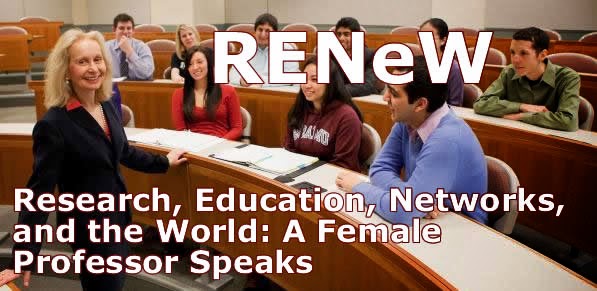
 Today we had the distinct privilege and honor of hosting Professor Jose Holquin-Veras of RPI in Troy, New York, who delivered the talk, Emergency Logistics Issues Impacting the Response to KATRINA: What Went Wrong? What Could we do to Avoid a Repeat? as part of the UMass Amherst Fall 2009 INFORMS Speaker Series. Professor Holquin-Veras arrived in time for the special reception that the Student Chapter that helps me to organize this series had prepared to celebrate its summa cum laude award which it received in San Diego on October 13, 2009. Before his presentation, which took place today at 11AM at the Isenberg School of Management, he chatted with the chapter officers and the guests who had come to the reception.
Today we had the distinct privilege and honor of hosting Professor Jose Holquin-Veras of RPI in Troy, New York, who delivered the talk, Emergency Logistics Issues Impacting the Response to KATRINA: What Went Wrong? What Could we do to Avoid a Repeat? as part of the UMass Amherst Fall 2009 INFORMS Speaker Series. Professor Holquin-Veras arrived in time for the special reception that the Student Chapter that helps me to organize this series had prepared to celebrate its summa cum laude award which it received in San Diego on October 13, 2009. Before his presentation, which took place today at 11AM at the Isenberg School of Management, he chatted with the chapter officers and the guests who had come to the reception.It was wonderful to have faculty and students, both undergraduate and graduate, not only from the Isenberg School, but also from the College of Engineering as well as from the Department of Economics in attendance. There were also guests from the community. I always say that if one has an outstanding speaker talking on a fascinating subject, the room will fill up, and Professor Holquin-Veras was simply terrific!
He shared with us his on-site experiences and knowledge gleaned from numerous interviews as well as data analysis on the disaster that was Katrina as well as on the second-tier disaster that followed with the material convergence. He spoke about the complete lack of emergency preparedness at local, regional, and national levels, and how Walmart, luckily, had identified the pending humanitarian disaster and had relayed trucks with supplies. We learned that 40 commodities are essential and how important it is to develop models for humanitarian logistics that identify the appropriate objective function to optimize, which he stated could be done with economic valuation to capture the social costs that should be minimized (and the associated suffering). Humanitarian logistics operations and supply chains are completely different from commercial supply chains and, ironically, in the former there is a great deal of competition among existing emergency service providers. The demands aren't known in the case of disasters and the convergence of material creates serious congestion (he spoke of tuxes being delivered, coats to warm climates, and totally useless materials).
How do we quantify the social costs and the priorities of deliveries in such situations where time is such an essential element and there is most likely chaos in locations that require the deliveries? Why were the emergency providers not trained in humanitarian logistics? Critical supplies were not prepositioned. Hopefully, the government has learned from the numerous mistakes made and the serious shortcomings that resulted in so much pain, suffering, and loss of life.
To the rapt audience, Professor Holquin-Veras also talked about the importance of mathematical modeling and in identifying appropriate metrics for humanitarian logistics operations. He also emphasized that the problems are nonlinear (as opposed to linear). At lunch, he offered life lessons and stressed the importance of doing research and valuing the long-term.
So many came up to me after Professor Holquin-Veras' talk and visit to thank me for helping to host him. I say thank you to Professor Holquin-Veras for educating us on a topic of great importance.
I hope that more universities will undertake the research and educational challenges surrounding emergency logistics and preparedness.

















